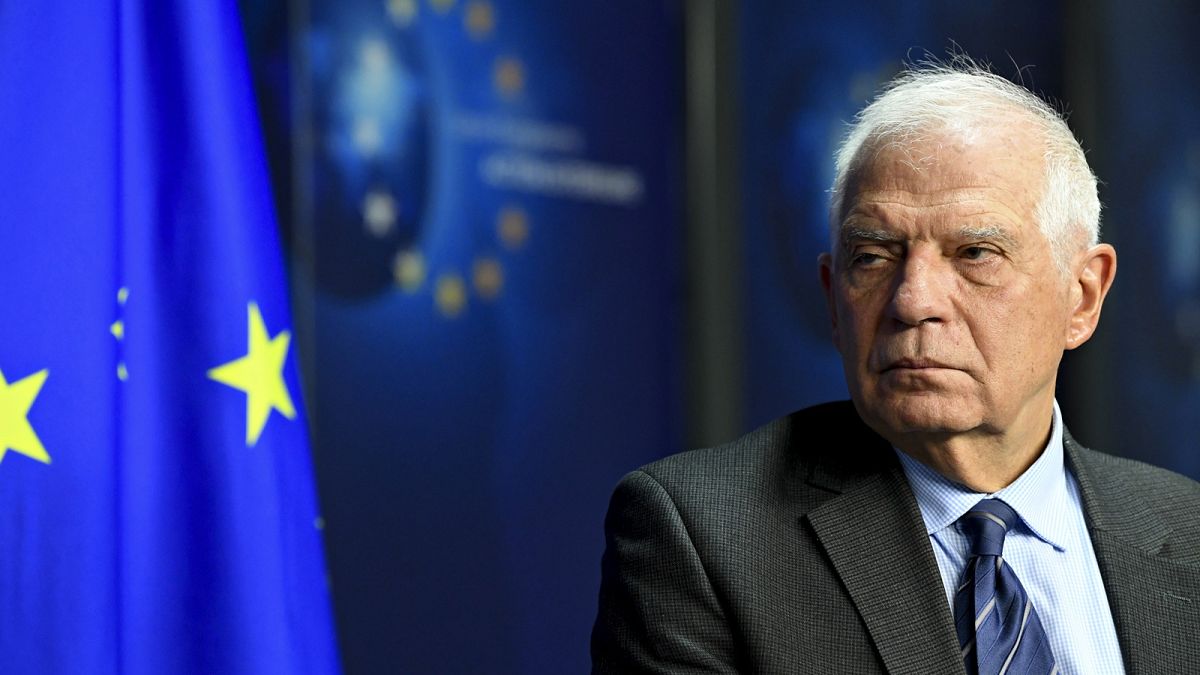The EU's foreign policy chief has faced days of increasing backlash over his controversial remarks on geopolitics.
After days of mounting international backlash, Josep Borrell, the European Union's outspoken foreign policy chief, has apologised for his controversial remarks in which he described Europe as an idyllic "garden" of prosperity and the rest of the world as mostly a "jungle."
"Some have misinterpreted the metaphor as 'colonial Euro-centrism'," Borrell wrote in a blog post on Tuesday evening. "I am sorry if some have felt offended."
But he did not reject the figure of speech and instead doubled down on it, arguing the term jungle is an apt illustration of the lawlessness and disorder that currently rule world politics.
"My reference to 'jungle' has no racist, cultural or geographical connotation," the diplomat said. "Unfortunately, the 'jungle' is everywhere, including today in Ukraine."
The controversy dates back to last Thursday, when Borrell addressed an audience at the European Diplomatic Academy in Bruges, Belgium.
"Europe is a garden. We have built a garden. Everything works. It is the best combination of political freedom, economic prosperity and social cohesion that the humankind has been able to build – the three things together," Borrell said during the event.
"The rest of the world," he went on, "is not exactly a garden. Most of the rest of the world is a jungle, and the jungle could invade the garden."
Borrell then appeared to refer to EU ambassadors as "gardeners" and urged them to "go to the jungle," that is to carry out their diplomatic work around the world and advance the bloc's geopolitical agenda.
"A nice small garden surrounded by high walls in order to prevent the jungle from coming in is not going to be a solution. Because the jungle has a strong growth capacity, and the wall will never be high enough in order to protect the garden," he said.
"Europeans have to be much more engaged with the rest of the world. Otherwise, the rest of the world will invade us, by different ways and means."
Borrell's comments were initially overshadowed by his blunt prediction, voiced during the same event, that the Russian army would be "annihilated" if it were to use nuclear weapons against Ukraine.
But over the weekend, the "garden vs jungle" metaphor gained traction across social media, fuelling backlash against the diplomat for what many saw as condescending, out-of-touch and racist undertones and a stark reflection of the Western sphere's superiority complex over the Global South.
Video clips on Twitter received hundreds of thousands of views. International media, such as the New York Times and Al Jazeera, offered critical coverage of the fallout.
The United Arab Emirates summoned the acting head of the EU delegation in the country and asked for explanations over the "inappropriate and discriminatory" remarks.
Marc Botenga, a Belgian MEP from the Left, said Borrell's words were "rooted in colonialism and racism."
On Monday morning, when asked about the growing criticism against his remarks, Borrell said he was "very okay" and that "every day is as much as intense as the previous one."
Standing his ground
By Tuesday evening, as backlash continued, the diplomat, who is affiliated with the socialist party, offered a careful apology but stood his ground and stuck to the metaphor.
"The metaphor of 'the garden' and 'the jungle' is not my invention. Some truly dislike it because, among others, it has been used by US neo-conservatives, but I am far from this school of political thought," he wrote in his personal blog.
"Regrettably, the world in which we live today looks more and more like a 'jungle' and less and less like a 'garden', because in many parts of the world, the law of the strongest is eroding agreed international norms."
Borrell said Europe had managed to replace centuries of war with lasting peace, cooperation and the rule of law, while other countries outside the continent, such as Russia, were resorting to "force, intimation and blackmail to get their way."
"I also have enough experience to know that neither Europe nor 'the West' is perfect and that some countries of 'the West' have at times violated international legality," he admitted.
The EU's foreign policy chief celebrated the recent resolution of the United Nations General Assembly in which 143 countries voted to condemn Russia's illegal annexation of four Ukrainian regions.
Only five countries voted against the text, while 35 abstained.
"This [resolution] shows there are many around the world who want a rules-based system, not one governed by a 'might makes right' attitude," Borrell wrote in his blog post.
"It follows that 'gardeners,' those who want to build a peaceful and lawful order, everywhere should unite and work together to beat back 'the jungle.'"
